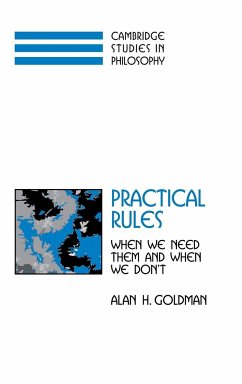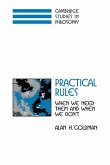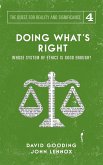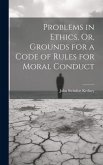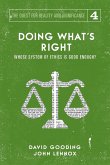Rules proliferate; some are kept with a bureaucratic stringency bordering on the absurd, while others are manipulated and ignored in ways that injure our sense of justice. Under what conditions should we make exceptions to rules, and when should they be followed despite particular circumstances? The two dominant models in the current literature on rules are the particularist account and that which sees the application of rules as normative. Taking a position that falls between these two extremes, Alan Goldman is the first to provide a systematic framework to clarify when we need to follow rules in our moral, legal, and prudential decisions, and when we ought not to do so. This book will be of great interest to advanced students and professionals working in philosophy, law, decision theory, and the social sciences.
Table of contents:
Introduction; 1. Moral rules; 2. Prudential rules; 3. Legal rules; 4. Moral reasoning without rules.
The two dominant models in the current literature on rules are the particularist and normative accounts. Taking a position between these two extremes, Alan Goldman is the first to provide a systematic framework to clarify when we need to follow rules and when we ought not to do so.
The first book to systematically clarify when rules should and should not be followed.
Table of contents:
Introduction; 1. Moral rules; 2. Prudential rules; 3. Legal rules; 4. Moral reasoning without rules.
The two dominant models in the current literature on rules are the particularist and normative accounts. Taking a position between these two extremes, Alan Goldman is the first to provide a systematic framework to clarify when we need to follow rules and when we ought not to do so.
The first book to systematically clarify when rules should and should not be followed.

